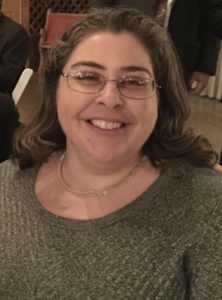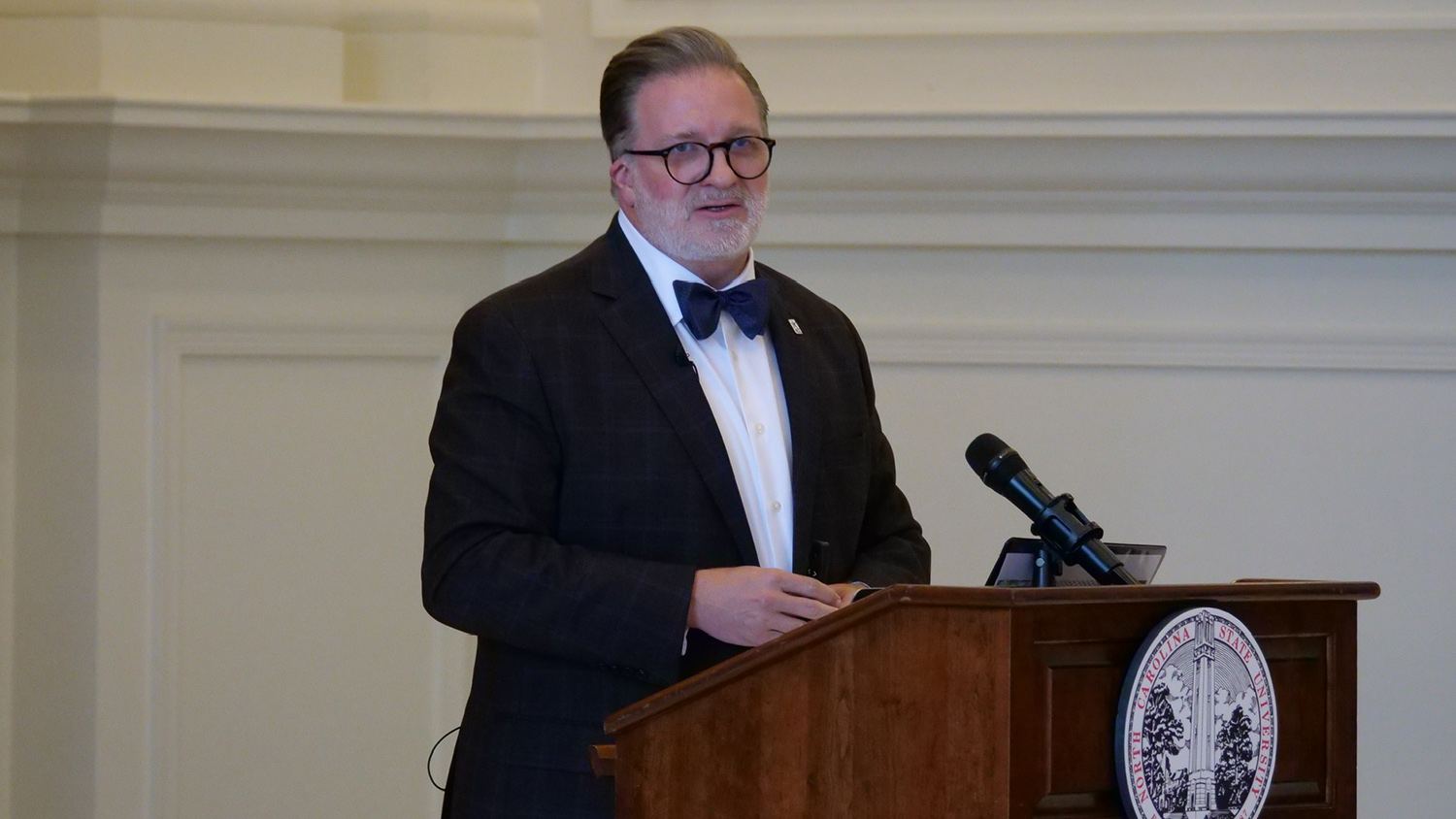New OCIP Cohort Raises the Bar for Online Education

In a time when online course quality has never been more important, this group of faculty is dedicating their time and efforts to making improvements to their courses to earn official Quality Matters (QM) certification after completion of the Online Course Improvement Program (OCIP).
OCIP is a rigorous 16-week program where faculty put forth a significant time commitment to improving their online courses based on the QM Rubric Standards.
Congratulations to Robert “Andrew” Branan, Rebecca De Haas, Cesar Delgado, Adam Fahrenholz and Joseph Simons-Rudolph for their dedication to quality to make a difference for students at NC State.
Teaching Associate Professor Edwin Lindsay and Teaching Assistant Professor Dmitri Mitin are serving as the faculty leads for OCIP this semester. The pair recently joined the pool of Peer Reviewers at NC State after completing the QM Peer Reviewer Course.
Meet the Fall 2020 OCIP Cohort
 Robert “Andrew” Branan
Robert “Andrew” Branan
Extension Assistant Professor
Department of Agriculture and Resource Economics
College of Agriculture and Life Sciences
As the parent of a third-year NC State student, Andrew Branan understands the problems students are currently facing from multiple perspectives.
“I have to make the online course worth the money for every parent and student paying for or financing their education and make its quality worthy of the NC State brand and the expense of a four-year university,” he says. “I feel like enrollment in this program is a timely effort to give it my best try.”
Branan is an extension assistant professor who has been teaching ARE 309: Environmental Law and Economic Policy online for four semesters. The course includes subject matter from the agricultural, natural resources, and engineering fields. Branan is looking to customize content to meet the learning needs of students from differing educational backgrounds.
Branan is also looking to discover new online delivery and assessment tools to assemble an effective mix for online learning. “I figured the OCIP would provide structure to help me move my course to the next level,” he adds. “As far as effective assessment, beyond quizzing, I feel I’m at the beginning stages and need a jump start and input from others more experienced in online assessments.”
COVID-19 has threatened the four-year college experience and risking a perception that all online university education is the same quality as any for-profit online learning business, says Branan. “Parents and employers must believe that the quality of online education branded to NC State is superior to a degree offered by a business…”
“My hope is the QM certification can help bridge what is lost when professors lose the benefit of feel and flow of reading a student audience’s real-time reaction to his or her effort to convey and assess understanding of concepts. Carrying this benefit online is what will differentiate NC State’s online offerings,” Branan adds.
 Rebecca De Haas
Rebecca De Haas
Lecturer
Department of English
College of Humanities and Social Sciences
Lecturer Rebecca De Haas is always looking for ways to improve her classes.
“Since my class is asynchronous online, I have to make sure my materials are timely, useful, and work correctly in order for the students to get the most benefit,” she says. “I find the Quality Matters and Online Course Improvement Program useful to help me find the areas in my class that need more improvement to help it be the best it can be.”
De Haas has been teaching ENG 331: Communication for Engineering and Technology online for five years. And like many others, she sees the importance of quality online courses now more than ever.
“So many people think online courses equal no rigor or learning, but that isn’t the case for my class,” she says. “However, it’s hard to see that without the certification or actually taking the class.”
“It’s important to have the certification for outsiders to realize online classes can be just as rigorous and enriching as a face-to-face class.” De Haas notes that with the pandemic, many students and parents are facing tough decisions related to continuing coursework online. “Having certification might make the choice a little easier for some who aren’t as familiar with online teaching,” she says.
 Cesar Delgado
Cesar Delgado
Associate Professor
Department of STEM Education
College of Education
Having a clear, easy-to-navigate Moodle page is a goal for Associate Professor Cesar Delgado and a reason he was interested in participating in OCIP.
Delgado will be focusing on improving his EMS 573: Design of Tools and Learning Environments in STEM Education course — a core course for the master’s programs in STEM education. Delgado has been teaching this course since 2015 and was part of the course redesign two years ago.
When asked about the importance of online courses, Delgado says, “I believe that the format and structure of online courses is important in the student learning experience. Students can get confused or frustrated if the course management website is disorganized or unclear. A terrific way to make the course website easy to navigate is by following a set of standards, like the OCIP provides.”
 Adam Fahrenholz
Adam Fahrenholz
Associate Professor
Prestage Department of Poultry Science
College of Agriculture and Life Sciences
Adam Fahrenholz is an associate professor in the Prestage Department of Poultry Science where he coordinates and oversees the feed milling program, Extension activities and applied research efforts.
During OCIP, Fahrenholz will focus on improving FM 425: Feed Manufacturing Technology which he has taught since 2013 and online since 2017.
“While I’ve consistently updated both the content and structure of my courses over time, it seemed like it was time to get some help pushing the course to the next level,” he adds.
When asked about the Quality Matters certification’s impact on students, Fahrenholz says, “I am hopeful that it will improve engagement and make the course easier to navigate through an improvement in continuity. As more courses are being offered to some degree via distance methods, I think that making sure the students’ experience is positive is increasingly important given the amount of time they’ll be spending online.”
 Joseph Simons-Rudolph
Joseph Simons-Rudolph
Assistant Teaching Professor
Department of Psychology
College of Humanities and Social Sciences
Joseph Simons-Rudolph has been teaching online since 2008 after receiving a DELTA Grant for course development. Currently he’s teaching PSY 230: Introduction to Psychological Research, a requirement for all psychology majors and minors and looking for ways to improve student engagement.
In comes Quality Matters and OCIP. Simons-Rudolph completed the QM teaching online certificate and spent time learning about the importance of online course design.
“I was able to incrementally implement a few changes but wanted an opportunity to not only update my course but have it peer reviewed. The OCIP program was a perfect fit,” he says.
As courses continue to transition online across the country, Simons-Rudolph notes how many students, faculty and administrators view online courses as lower quality than face-to-face courses. He adds, “The Quality Matters framework provides a valuable approach to systematically evaluate our own courses and how well they are designed to engage online learners.”
“For many years, NC State and DELTA have done a great job at developing an infrastructure to support the development of high-quality online courses. Much of this success has been through strong, intentional course design emphasizing elements that maximize student engagement and learning. I am really excited to have the opportunity to work with the DELTA team in this program!” he says.
About the Course Quality Program
DELTA is nearing its fourth year of facilitating OCIP — just one of the pathways to online course quality assurance at NC State.
In fall 2019, DELTA expanded its online course quality efforts to include multiple pathways for faculty members to improve their online and blended courses. The new initiative was named the Course Quality Pathways — part of the Course Quality Program — which is rooted in the principles of QM, a nationally recognized, standards-based rubric and process focused on continuous improvement of online and blended courses and programs.
NC State has 24 official QM-certified courses and more than 150 faculty and staff who have participated in QM training.
The Course Quality Program is facilitated by a team of stellar DELTA staff members — Jill Anderson, Christopher Beeson, Arlene Mendoza-Moran, Rebecca Sanchez, Bethany Smith and Bethanne Tobey.
As DELTA continues to leverage innovative pedagogy and technology in the pursuit of student success, we’ll also continue to lead the way and deliver on our promise of promoting high-quality education to all learners through the Course Quality Program.
This post was originally published in DELTA News.
- Categories:

